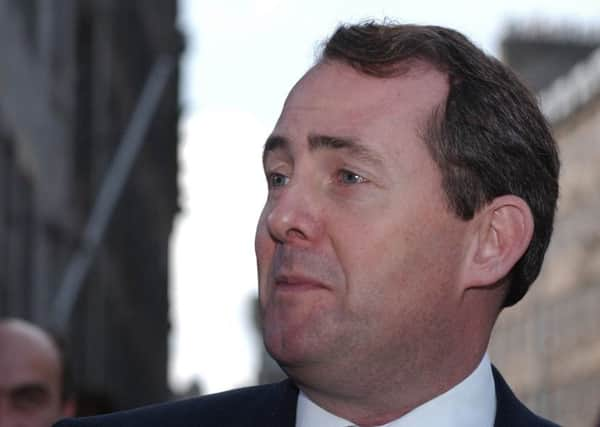Stephen Jardine: Chicken row at heart of what is at stake over Brexit


You might have thought human rights, immigration or finance would have been the key battleground as we move towards Brexit. Instead this week it was chlorinated chicken dominating the disagreements.
At the start of the week Liam Fox suggested Britain should be open to the prospect of allowing chicken to be treated with chlorine as part of a wider trade deal with the United States. At the moment that process is banned by the EU but the Trade Secretary insisted it poses no health risk. However that message didn’t reach his Cabinet colleague Michael Gove. On Wednesday the Environment Minister said the US could “kiss goodbye” to any trade deal if it included such imports.
Advertisement
Hide AdAdvertisement
Hide AdThis row gets to the heart of what is at stake in the negotiations. Six months ago in this column, chlorinated chicken and grain-fed US beef were identified as concerns, before talks started. So it has come to pass.
Britain needs a quick trade agreement with the US to pacify critics who think we could ending up crashing out of the EU in two years with no deals in place. But should that deal be at any price?
The British approach to safe poultry farming has always been based on prevention. Stringent hygiene measures are in place while the birds are raised, killed and prepared for public sale. Despite that, one survey showed three- quarters of all fresh chickens in supermarkets carried the food poisoning bug campylobacter. So the next line of attack is in the home, where we are told to follow strict advice on storing, handling and cooking children. All of that should keep us safe but every year we still face 500,000 cases of food poisoning linked to poultry.
The American approach is different. Alongside prevention they focus on cure, using a chlorine solution to try to eradicate food poisoning bugs. It does not offer much more protection but nor does it affect the taste of the bird or pose any risk to consumers. So why not accept a process that offers no pain and potential gain? After all, we drink chlorine in tap water every day so isn’t a little more splashed on a chicken a small price to pay for a whopping trade deal?
The answer is, it’s not that simple. The EU banned chlorinated chicken because they feared the wide range of prevention measures currently in place would be abandoned and abbatoirs would simply use the chlorine treatment as a last line of defence.
Chicken here is about 20 per cent more expensive than it is in the US because our producers have to invest in hygiene and safety equipment to an extent they don’t in America. Research also suggests antibiotics and other drugs are used much more widely in poultry production in the United States. Any trade deal could leave British farmers with an impossible choice.
If they carry on as normal, they face being undercut by American poultry producers selling cheaper chickens with lower welfare standards. If they switch to American methods of production, it could be impossible to sell to our European neighbours.
Scotland established a worldwide reputation for food and drink excellence by aiming for the top and having high standards. From seafood to meat, from whisky to berries, our produce is in great demand because it is the best and that allows us to charge a premium. That is where we need to stay because in a race to the bottom we will always lose to countries with slacker standards when it comes to how they treat people and produce. If we start diluting animal welfare or environmental standards now to get a trade deal, we might end up with things no one actually wants.